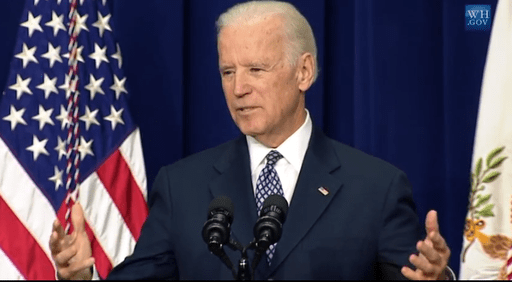Republican leaders advise focus on policy critiques as Harris becomes likely Democratic nominee
In the wake of President Joe Biden’s withdrawal from the 2024 presidential race, Republican leaders are advising their party members to avoid racially and sexually charged attacks on Vice President Kamala Harris. This strategic shift comes as the GOP grapples with the reality of Harris emerging as the probable Democratic nominee for the upcoming election.
During a closed-door meeting of House Republicans on July 23, 2024, National Republican Congressional Committee Chairman Richard Hudson urged lawmakers to direct their criticisms toward Harris’s policy record rather than her personal attributes. House Speaker Mike Johnson echoed this sentiment, emphasizing that the election should focus on policies rather than individual identities.
Embed from Getty ImagesThe guidance highlights the GOP’s cautious approach in addressing Harris, the first woman, first Black woman, and first person of South Asian descent to potentially lead a major U.S. political party. Republicans are aware that overtly racist or sexist remarks could alienate key voter groups, including suburban women, voters of colour, and younger demographics, all of whom are critical in swing states.
Amidst this backdrop, Trump’s campaign has shifted its focus from personal attacks to policy critiques. Former President Donald Trump, known for his controversial rhetoric, has criticized Harris’s record, particularly her tenure as San Francisco’s district attorney and California’s attorney general. He has labelled her policies as “radically left” and has attempted to tie her to Biden’s unpopular policies on the economy, crime, and immigration.
Trump’s campaign also claims that Harris is complicit in Biden’s handling of health issues, portraying her as a partner in Biden’s “failed agenda.” The GOP’s approach includes highlighting what they describe as Harris’s extreme liberalism compared to Biden’s more moderate stance.
In contrast, the Republican strategy advises party members to avoid personal attacks and instead emphasize Harris’s association with Biden’s policies and her more progressive record. This advice aims to prevent the alienation of voters who may be sensitive to racially and gender-based attacks.
The GOP’s strategy reflects a broader effort to balance aggressive policy critiques with a more cautious approach to personal attacks, which could impact the party’s appeal among moderate and swing voters. With Harris’s candidacy altering the electoral landscape, the GOP faces the challenge of crafting a message that resonates with a diverse electorate while avoiding potentially damaging rhetoric.
Analysis:
Political: The GOP’s strategic shift underscores a significant adaptation to the evolving presidential race dynamics. By advising against overtly discriminatory attacks, Republican leaders recognize the need to address Harris’s candidacy with a focus on policy rather than personal attributes. This approach reflects an understanding that while Trump’s combative style has energized his base, it may also alienate swing voters who are critical for a successful campaign. The emphasis on policy critiques allows Republicans to challenge Harris on her record and align their campaign messaging with broader voter concerns about Biden administration policies.
Social: The Republican caution against racist and sexist attacks mirrors ongoing societal debates about race and gender. In an era where identity politics and inclusivity are prominent, the GOP’s strategy reflects an awareness of the potential backlash against discriminatory rhetoric. The focus on policy rather than personal attacks suggests an attempt to align with contemporary social norms that prioritize respectful and substantive political discourse. This shift may also be an effort to mitigate the impact of past controversies and present the GOP as a party capable of addressing societal issues with a more refined approach.
Racial: Harris’s candidacy as the first Black woman and person of South Asian descent in a major U.S. political party brings racial dynamics into sharp focus. The GOP’s caution against racially charged attacks highlights the sensitivity around race in contemporary politics. Harris’s race and background are central to her candidacy and campaign strategy, making it essential for the GOP to navigate these issues carefully. The emphasis on avoiding racial attacks demonstrates an understanding of the broader implications of racial rhetoric and its potential impact on the party’s appeal among diverse voter groups.
Gender: Gender dynamics play a significant role in the campaign as Harris becomes the first woman with a realistic chance of winning the presidency. The GOP’s advice to avoid sexist attacks reflects a recognition of the importance of gender in electoral politics. Given Trump’s history of controversial remarks about women, the party’s strategy indicates an effort to distance itself from such rhetoric and focus on substantive policy discussions. This approach acknowledges the need to address gender issues sensitively while engaging with Harris’s record and policies.
Economic: The economic context of the 2024 election, including concerns about inflation, housing costs, and economic stability, is central to the GOP’s critique of Harris. By focusing on economic policies and associating Harris with Biden’s handling of economic issues, Republicans aim to address voter dissatisfaction with the current administration. The strategic shift reflects an understanding that economic concerns are a significant factor in voter decision-making, and addressing these issues head-on allows the GOP to present itself as a viable alternative to the Democratic candidate.
